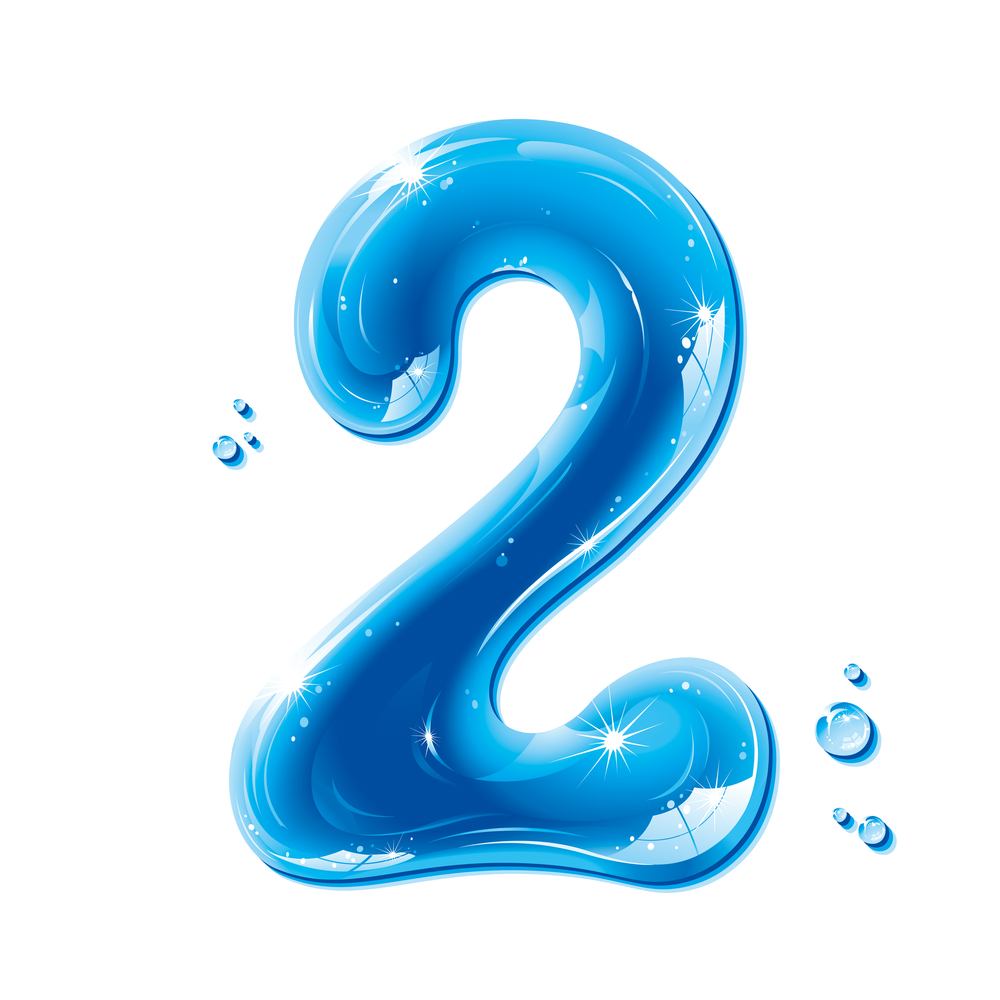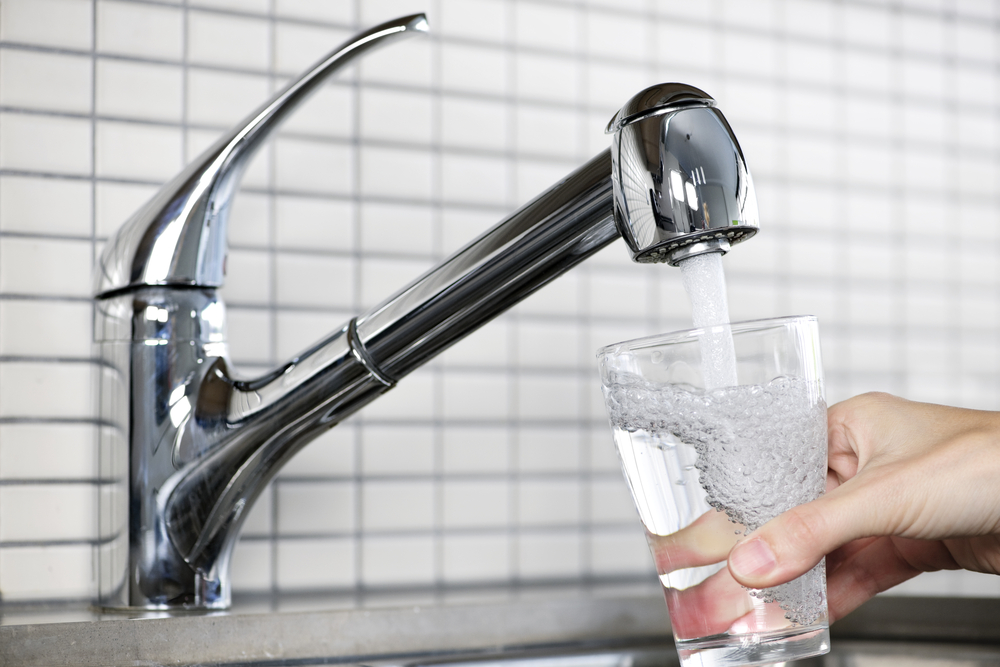Facts and myths about drinking water

Water is the simplest source of energy for the organism and is as important as microelements in diet (proteins, fats and carbohydrates). It is one of building blocks of all tissues and cells in human body (exemplifying: heart, lungs, muscles and kidneys). Without water their proper functioning would be impossible, which means that its lack can lead to fatigue, worsening of well-being or condition and even health. You can often hear false, wrong statements about drinking water, which were wrongly anchored in public knowledge. In this article you will come to know popular facts and myths about drinking water, which will help you to avoid harmful practices.

Facts and myths about drinking water – table of contents:
- Water is responsible for edema and swelling. MYTH
- Drinking water from plastic bottles is harmful. FACT
- You have to drink 2 liters of water, 8 glasses of water daily. MYTH
- Thirst means dehydration. MYTH
- Sport drinks are better than water, to sustain proper level of hydration. MYTH
- Drinking water helps to lose weight. FACT
- Water helps to remove harmful substances from the organism. FACT
- Still water is healthier than carbonated. MYTH
- Tap water is unhealthy. MYTH
- Excess of water is harmful. FACT
Facts and myths about drinking water: Water is responsible for edema and swelling. MYTH
Water consumption is not the direct reason behind developing edemas or swelling, but co-existing diseases, which are responsible for withholding water in the organism. Other reason behind gathering water are: poor diet, hormonal imbalance e.g. spike of estrogen in women before menstruation, pregnancy, bad lifestyle, alcohol consumption, excessive salt intake or dehydration. For some people it seems that limiting water consumption would be a great way to prevent edemas, leg swellings, bloated stomach or even they would easily lose weight. For sure it is a myth! From these practices comes more negative consequences for health than doubtful benefits.
However, an exception are people suffering from heart, kidney, liver or cardiovascular diseases or hypertension. In their case it is not recommended to drink excessive amounts of water and they should consult a doctor about it.

Facts and myths about drinking water: Drinking from plastic bottles is harmful. FACT
If you re-use plastic bottles you make a grave mistake. At the outlet of the bottle multiple microbes and bacteria, which then multiply and can cause for example, diarrhea. Additionally, doing so leads to release of microplastics to the water, which in form of nanoparticles enters your organism. We do not probably have to highlight that it is harmful. The best way to avoid such things from occurring is using specially designed water bottles for multiple uses, which will provide comfort and safety.
Facts and myths about drinking water: You have to drink 2 liters of water, 8 glasses of water daily. MYTH
Daily consumption norm is individual for different for everybody. This case should be approached very elastically, and the quantity of 2 liters a day is generalized and provided for information purpose to elevate social awareness. Everything in majority depends on the weight and that is 30 ml per every kilogram of body weight. So if you are a very skinny person and you weigh 50 kg your daily need for water is 1,5 liter. There are also other aspects affecting elevated need for water consumption as: intensive physical work, sex, age, climate and high temperature, then the need proportionally increases. For athletes 2 liters a day can be insufficient, because they lose too much water during training. Due to that, the norm is often increased by another 2 liters. It is worth pointing out that from 20% to 30% of daily need for water is acquired from food. So it is already about 1 to 2 glasses less to drink to reach daily dose.

Facts and myths about drinking water: Thirst means dehydration. MYTH
If you feel the need to drink it is not dehydration just yet. It is a warning signal to replenish fluids. If you do not do so you are on your way to dehydration.
Facts and myths about drinking water: Sport drinks are better than water to sustain proper level of hydration. MYTH
Athletes often choose ready drink with electrolytes, because during intense training they lose, together with sweat, high amounts of salt and other minerals. In this case, this kind of isotonic drinks is a great choice – it will quickly replenish salt reserves, which is, to small extent, needed for the proper functioning of the organism. If you want to maintain good hydration level – just plain water is enough. If anyone says differently, it is only a marketing scheme. Moreover, these cheap sport drinks could be of bad quality, contain sugar or sweeteners, artificial colorings or taste enhancers.

Facts and myths about drinking water: Drinking water helps to lose weight. FACT
This is not a myth and it is worth keeping in mind, even if you are not a strict diet. Choosing water above sweetened, colored drinks between meals helps to reduce the amount of ingested calories during the day. Yet, a glass of water drunk half an hour before meal will make you feel satiated fast and you will in result eat a smaller meal. Too high amount of fluids with dilute gastric juice needed for digestion.
Facts and myths about drinking water: Water helps to remove harmful substances from the organism. FACT
Maintaining adequate level of hydration is crucial for the proper functioning of kidneys, which filter out waste substances and remove toxins with urine. Too little water can cause that kidneys would not function properly and harmful substances will reach the bloodstream.

Facts and myths about drinking water: Still water is healthier than carbonated. MYTH
There is no one answer, which of these is better or healthier. Both of them can have similar content of mineral components. Carbonated water is valued for the taste and immediate feeling of refreshment as soon after swallowing first sips. However, carbon dioxide can help indigestion and constipation and its presence can increase absorption of calcium and magnesium. Although in some cases it can irritate the mucosa and promote bloating and expanding of the stomach. That is why, people with gastric problems, reflux or heartburn, hypertension and small children should avoid carbonated drinks to evade these negative effects (that might be the source of this myth).
Facts and myths about drinking water: Tap water is unhealthy. MYTH
Both normal tap water form the local water supply can have in its composition as much as minerals as these sold mineral and carbonated waters in the shops. However, the condition of water supply infrastructure can be doubtful, so the contamination can be present in the supplied water. Good solution would be to filter tap water in a special kettle, which will purify it and catch any occurring contaminants. Then, without hesitation, the water is safe to drink (the exception would be small children, which should be served additionally boiled water just to be safe).

Facts and myths about drinking water: Excess of water is harmful. FACT
Considerable excess of water daily intake can result, in extreme cases, even in death. It is connected to the dilution of sodium concentration in blood, what can cause brain swelling. This state is called hyponatraemia – the development of this state is also promoted by excessive physical strain and losing sodium with sweat and simultaneous drinking horrendous amounts of water
